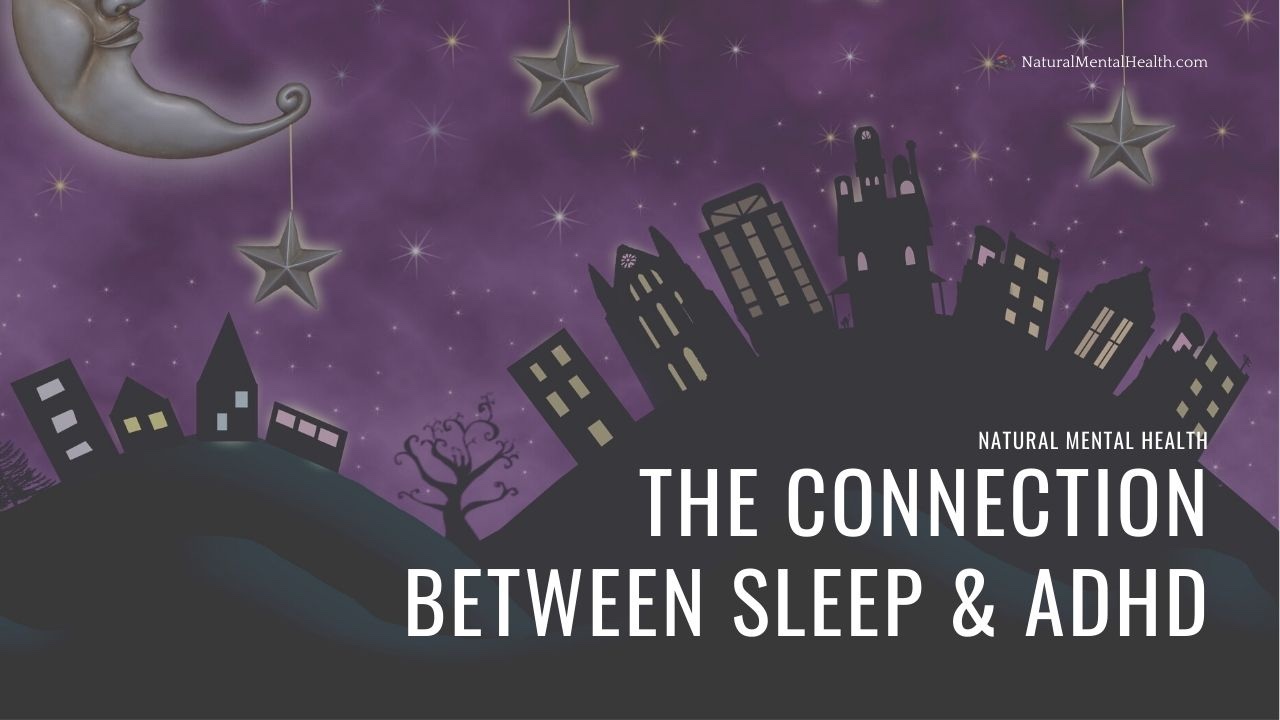
Sleep and ADHD: Problems with Melatonin & Circadian Rhythm
Aug 27, 2019Timothy Culbert, MD, IFMCP
The Connection Between Sleep and ADHD
Many of the same brain regions that regulate sleep and arousal also control attention. You've likely felt that firsthand when trying to focus on a task after a rough night of [no] sleep. It's a losing battle.
The relationship between ADHD and sleep is becoming more clear as new research has identified that:
- Between 55% and 75% of kids and adults with ADHD also suffer from sleep related issues.
- Even just a little sleep deprivation can lead to mental fog, inefficiencies, and can mimic the symptoms of ADHD.
- The symptoms of insomnia and ADHD may be related to the dysregulation of the 24-hour clock (AKA your circadian rhythm).
Though not always done in usual care, it's vital that sleep issues are explored in any child, teen, or adult with complaints of inattention, impulsivity, or hyperactivity. If you're a patient or parent who can relate, don't be shy to bring up the topic of sleep with your doctor.
The Connection Between Melatonin and ADHD
Many kids with neurodevelopmental problems (e.g., ADHD, autism, and Tourette’s) may actually make less of the brain chemical melatonin than their neurotypical peers. That's important considering melatonin (often called the "sleep hormone") helps set the body's 24-hour clock for proper sleep/wake balance.
Circadian Rhythm Issues, Melatonin, and ADHD
Quick Summary: It's clear that there's a relationship between ADHD and sleep issues and melatonin plays a key role because it works to help regulate the body's circadian rhythm (or 24 hour cycle).
How can melatonin and the circadian rhythm get out of balance?
- Melatonin release may be delayed. Melatonin levels rise and fall according to circadian rhythms and delays to the nightly increase in melatonin can lead to problems falling and staying asleep.
- Adults and children with ADHD tend to be more alert during evening hours. Because of melatonin release and other circadian-driven changes, humans are typically biologically wired to be less alert at night. Since alertness and hyperactivity at night are common symptoms of ADHD, this pattern suggests an underlying issue with circadian rhythms. In one study, after sleep onset delays at bedtime were corrected, improvements in ADHD symptoms occurred (Arns & Kenemans, 2014)
- Theta waves. Some folks with ADHD experience times of excessive or abrupt daytime drowsiness. This is most common when engaged in non-preferred or “boring” activities. These episodes represent times where theta waves (slower brain wave frequencies) kick in and cause a feeling of sleepiness during daytime activities.
Reset Circadian Rhythm to Reduce Symptoms of ADHD
Therapies that reset the circadian rhythm, termed “chronobiological treatments,” (e.g., supplementing with melatonin or using a light therapy) can be surprisingly effective for ADHD symptoms.
How Chronobiological Treatments Work
Understanding how all of this plays out in the brain can be empowering for those with sleep issues and ADHD symptoms. It's a bit of brain science jargon, but hang with me cause the knowledge is good to have...
Chronobiological treatments work in part by affecting the suprachiasmatic nucleus. The suprachiasmatic nucleus (SCN) is an area of the brain where circadian rhythms are generated. But wait, there's more! Because of its role as principle circadian pacemaker, the SCN is also key for regulation of core body temperature, neuroendocrine function, autonomic function, memory and psychomotor performance, and a host of other behavioral and physiological processes. All of this hard work of the SCN classifies it as the central player in an important neural system, called the circadian timing system (CTS).
The SCN has also been shown to project to the noradrenergic locus coeruleus (LC), which is a small area in the basal brain containing nerve cell bodies and where norepinephrine is generated. Norepinephrine is a brain chemical which enhances attention and arousal.
RELATED ARTICLES
A Whole Family Approach to Reset Circadian Rhythm
Creating a culture of healthy sleep in a household requires a “whole family” behavioral approach to sleep. That means you'll need everyone in your home to opt-in to healthy sleep hygiene practices. Read more.
How to Use Melatonin to Reset Circadian Rhythm
Melatonin can be helpful for kids and teens with ADHD for both sleep onset and sleep maintenance issues. Learn how to use melatonin safely. Read more.
SOURCES
Arns & Kenemans. (2014). Neurofeedback in ADHD and insomnia: Vigilance Stabilization through sleep spindles and circadian networks.
Bijlenga et al. (2019). The role of the circadian system in the etiology and pathophysiology of ADHD: time to redefine ADHD?
Abdelgadir et al. (2018). Melatonin for the management of sleep problems in children with neurodevelopmental disorders: a systemic review and metanalysis.
Cummings. (2012). Melatonin for the management of sleep disorders in children and adolescents.
Masi et al. (2019). Effects of melatonin in children with attention-deficit/hyperactivity disorder with sleep disorders after methylphenidate treatment.
FURTHER READING ON SLEEP AND ADHD
https://thesleepdoctor.com/2018/04/24/a-new-theory-about-adhd-and-sleep/
https://www.additudemag.com/adhd-sleep-disturbances-symptoms/









